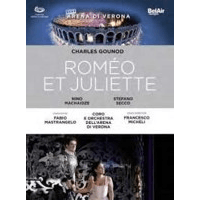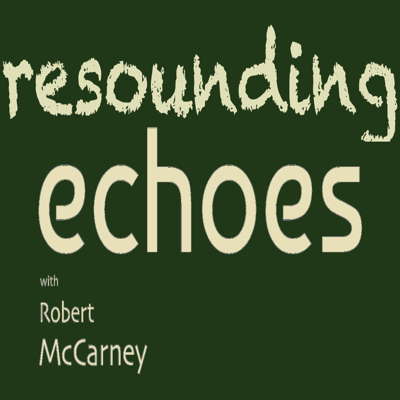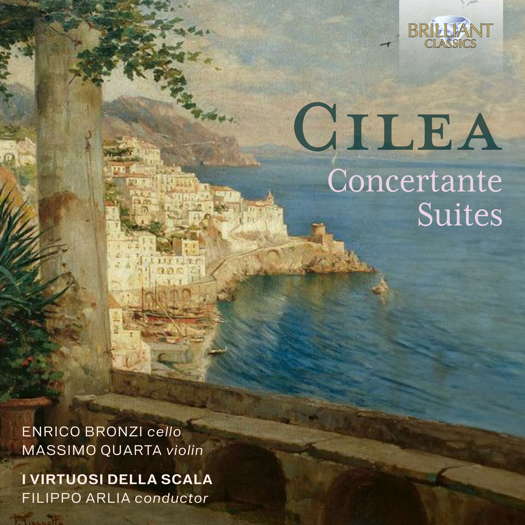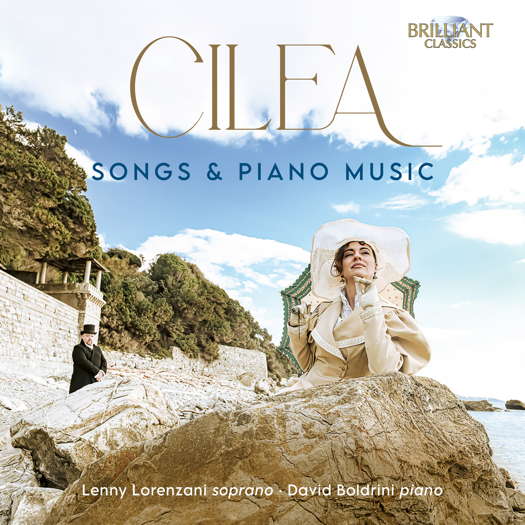 SPONSORED: DVD Spotlight. Olympic Scale - Charles Gounod's Roméo et Juliette, reviewed by Robert Anderson.
SPONSORED: DVD Spotlight. Olympic Scale - Charles Gounod's Roméo et Juliette, reviewed by Robert Anderson.
All sponsored features >>
 DISCUSSION: John Dante Prevedini leads a discussion about Composers, individuals or collective?, including contributions from David Arditti, Halida Dinova, Robert McCarney and Jane Stanley.
DISCUSSION: John Dante Prevedini leads a discussion about Composers, individuals or collective?, including contributions from David Arditti, Halida Dinova, Robert McCarney and Jane Stanley.
 RESOUNDING ECHOES: Beginning in 2022, Robert McCarney's occasional series features little-known twentieth century classical composers.
RESOUNDING ECHOES: Beginning in 2022, Robert McCarney's occasional series features little-known twentieth century classical composers.

Lofty Ideas
GERALD FENECH listens to music by Francesco Cilea
'Performances are alive, clear and cheery.'
Francesco Cilea (1866-1950) is one of those Italian composers who, one might say, was born at the wrong time. He was primarily an opera composer, but apart from L'Arlesiana and Adriana Lecouvrer, all his other stage-works have practically fallen by the wayside. Still, there is a glimmer of hope with a recent revival of 'Gloria', a work that has not been performed for decades. Maybe the reason for this lack of success lies in the fact that he was overshadowed by such giants as Verdi, Puccini and Mascagni, who here his contemporaries.
But here we are not concerned with the operatic Cilea but with a composer who displayed great acumen in other genres such as piano music, songs, chamber music and orchestral pieces, and this disc focuses quintessentially on the latter, a genre that bears witness to a unique Italian voice and aesthetic philosophy.
After the failure of 'Gloria' in 1907, Cilea turned to teaching but he did not abandon composition altogether. Instead, he turned back to instrumental music and the works on this album are among the fruits of this revived inspiration. Apart from Cilea's melodic vein, the Suite for Violin and the 'Piccola Suite' for orchestra reveal his talent for counterpoint, as well as an impressive approach to tonal harmony that reflects his awareness of innovation. This Suite was orchestrated by Cilea in 1946, and was taken from the Violin and Piano Suite of nine years earlier. The four brief movements are cast in a neo-classical vein, enclosing an elegant minuet followed by an Andante sostenuto in the very unclassical key of C sharp minor.
Listen — Cilea: Andante sostenuto (Suite for Violin)
(96761 track 3, 0:00-0:51) ℗ 2024 Brilliant Classics :
The Piccola Suite (1931) more thoroughly absorbs the idioms of French music of the period, and with its modal harmony, whole tone scales and sequences of seventh and ninth chords we are far away from the Cilea of Adriana Lecouvreur.
Listen — Cilea: Notturnino (Piccola Suite)
(96761 track 11, 0:21-1:20) ℗ 2024 Brilliant Classics :
The arrangement, revision and scoring of Leonardo Leo's Cello Concerto in D (1737) bears witness to Cilea's deep connection with the Naples Conservatoire where he had studied and where he became director until his retirement in 1935. Its generous orchestration, and yet respect for the eighteenth century idiom of the writing, makes an intriguing and almost unknown parallel to the Cello Concerto in D recomposed by Schoenberg in 1931 after a 1746 work by Georg Matthias Monn.
Listen — Leonardo Leo: Allegro (Cello Concerto in D)
(96761 track 8, 1:59-2:37) ℗ 2024 Brilliant Classics :
Completing this unique survey of Cilea's output is a modern work, the first recording of the Canto dell'Amore by Raffaele Cacciola, born in 1965. The style of this 'sinfonia concertante' in all but name is a homage to the example of Cilea: totally unpredictable yet always melodic.
Listen — Raffaele Cacciola: Canto dell'Amore
(96761 track 5, 1:24-2:15) ℗ 2024 Brilliant Classics :
This is a delightful compilation of mostly light-hearted works full of good tunes, superbly well-crafted and ingeniously orchestrated. True, there are some complexities here and there but, by far and large, the music flows with transparency and effervescence. Performances are alive, clear and cheery. All credit to Maestro Arlia who, despite keeping a tight rein on proceedings, allows his players to express themselves with joyous freedom. A fine issue dedicated to a composer whose stock at present has hit a new low. Hopefully, these suites can re-ignite a fresh appraisal of Cilea's work. A Brilliant disc in excellent sound and annotations.

In Art, the expression of the spirit, the constant and uncompromising norm for me has always been Italianism, modernized in the progress of forms and technique, never stifled nor deformed, as Arlesiana, Adriana and Gloria, the three creatures of my imagination and my dreamed ideal, attest and prove.
Francesco Cilia wrote these words at the end of his 'Ricordi' in their last draft of December 1947. Witnesses of the Italianism, of the simple, fluid and elegant vocal melodic line are, in addition to his beloved operas, the lyrical works for voice and piano that were produced over a period of more than half a century. Lyrics, sacred pieces and vocalisations represent Cilea's entire output for voice and piano and were published in a single volume that also includes the unpublished ones by Ricordi, in 2016 for the 150th anniversary of the composer's birth.
In November 1913, in an interview given to the Palermo daily L'Ora, Cilea declared:
The true instrument of expression of the passions is the divine human voice with which no instrument can ever rival.
He devoted himself to the human voice in various ways throughout his life, both as Director, from 1913 to 1916, of the 'Bellini' Conservatory in Naples, and by giving lessons to famous names such as Ebe Strignani and Maria Caniglia among others, and by lavishing advice and lessons to the performers of his operas.
Cilea's proximity benefited the young Enrico Caruso, the first interpreter of Federico in Arlesiana and Maurizio in Adriana. Indeed, everything he wrote, from large-scale stage works to chamber pieces to the salon songs and miniatures gathered on this disc, expressed his quintessentially Italian voice and aesthetic philosophy.
Regarding his lofty ideas on the greatness of the human voice, in complement to his career as an opera composer, he wrote a small but exquisite collection of songs gathered here by artists with a considerable experience in the field of neglected Italian art-song. The collection opens with the charming 'Romanza', which Cilea composed at the age of seventeen, evidently under the spell of Bellini's Norma.
Listen — Cilea: Romanza
(96734 track 1, 0:00-0:51) ℗ 2024 Brilliant Classics :
The more complex harmony of Bionda larva from three years later mirrors Cilea's development as a stage composer about to launch his first opera Gina. Every sung line here is calculated, as it was in Monteverdi's day, to heighten an appreciation of the text and the emotions underlying it, with a madrigalian illustration which always colours and never obscures the words. There are expressions of heightened erotic passions alongside simple religious devotion – a typically Italian paradox.
Listen — Cilea: Bionda larva
(96734 track 15, 0:00-0:54) ℗ 2024 Brilliant Classics :
This issue is further embellished by four evocative miniatures superbly played by David Boldrini, works that function essentially as songs without words.
He and Lenny Lorenzani have already made a previous collection of Cilea's songs in 2023 which came in for high praise, and the one in hand should garner the same success, if not more due to its more varied programme. Exquisitely fragile Italian 'dolci' gorgeously sung, recorded and presented. Strongly recommended, especially if you are in need of a relaxed evening.
Copyright © 29 August 2024
Gerald Fenech,
Gzira, Malta



